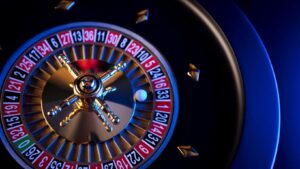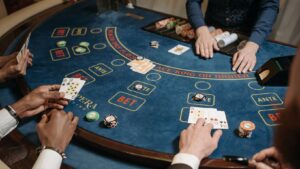Table of Contents
ToggleIn a world overflowing with self-help books and diet fads, it’s time to embrace the ancient wisdom of paganism. Whether you’re a curious newcomer or a seasoned practitioner, good pagan books can unlock a treasure trove of knowledge, rituals, and enchantments. They’re like a cozy blanket on a chilly night—comforting, enlightening, and maybe just a little bit magical.
From spellbinding tales of mythology to practical guides on rituals, these books offer a delightful escape from the mundane. They’re not just for the witches and wizards; even skeptics might find themselves enchanted. So grab your favorite herbal tea and prepare to dive into a world where the moon has a say in your plans and nature’s whispers guide your path. With the right book in hand, every day can feel like a little adventure.
Understanding Paganism
Paganism encompasses a variety of spiritual paths, grounded in reverence for nature and ancient traditions. Recognizing its diversity helps grasp its essence and significance.
Definition and Overview
Paganism refers to a broad spectrum of spiritual practices, often characterized by polytheism, earth-centered beliefs, and a connection to the natural world. Many traditions within paganism include rituals that honor deities, celebrate seasonal changes, and emphasize personal experience. Followers often seek to cultivate a deeper connection with the Earth, finding meaning in mythology, symbolism, and ritual practices.
Different Paths of Paganism
Many pathways exist within paganism, each offering unique beliefs and practices. Wicca, one of the most recognized forms, focuses on the worship of a goddess and god, along with nature’s cycles. Druidry emphasizes connection with the natural world and ancient wisdom. Heathenry honors Norse gods and traditions, celebrating ancestral heritage. Additionally, eclectic paganism combines various elements from multiple traditions, allowing practitioners to create personalized spiritual paths. Each path invites exploration, offering insights and experiences to practitioners seeking to deepen their understanding.
Criteria for Good Pagan Books

Identifying good pagan books requires assessing several key criteria. These criteria ensure that the texts offer valuable insights and resonate with readers.
Depth of Knowledge
Books with depth of knowledge present extensive information on pagan practices, mythology, and rituals. Authors should draw from credible sources, historical texts, and personal experiences to enrich their content. Readers benefit from works that cover various traditions, offering a comprehensive overview. Detailed explanations of rituals and their meanings enhance understanding for both beginners and seasoned practitioners. Stories and firsthand accounts engage readers, making connections to real-world experiences. Quality references and suggested reading lists further support the learning process.
Accessibility for Readers
Accessibility plays a crucial role in the value of pagan books. Texts should be written in clear, inviting language that appeals to a broad audience. Complex concepts must be presented in an easily digestible manner. Good pagan books often include practical exercises, step-by-step instructions, or guides to encourage hands-on learning. Visual aids, such as illustrations or charts, may enhance comprehension and interest. Authors who cater to various reading levels create inclusive works that inspire a deeper exploration of pagan paths. Engaging narratives invite readers to experience the magic of paganism without overwhelming them.
Recommended Good Pagan Books
Exploring pagan literature reveals a treasure trove of insights and practices. The following recommendations include classic works and contemporary authors essential for both newcomers and seasoned practitioners.
Classic Works
Classic works often lay the groundwork for modern pagan practices. Books like The Golden Bough by James Frazer explore ancient beliefs and rituals. Additionally, The Mabinogion provides a collection of Welsh mythology that inspires many pagan paths. Buckland’s Complete Book of Witchcraft integrates various traditions and offers a comprehensive guide to rituals. Each text sparks curiosity and a desire to delve into historical contexts and practices.
Contemporary Authors
Contemporary authors make pagan knowledge accessible and relatable. Fiona Horne’s Witch: A Personal Journey shares personal experiences while attracting readers to Wiccan beliefs. Paul McCarthy’s The Book of Druidry introduces readers to Druidic practices with clarity and enthusiasm. Additionally, Holly Palmer’s Practical Magic blends everyday life with magical principles, emphasizing ritual in ordinary moments. Engaging with these authors fosters understanding and excitement about personal spiritual journeys.
How to Choose the Right Book
Choosing the right pagan book is crucial for personal growth and deeper understanding of the practices. Readers should consider various factors to ensure a fulfilling experience.
Consider Your Interests
Identifying personal interests enhances the book selection process. Focus on specific topics like rituals, mythology, or nature spirituality. Think about your level of experience; beginners may prefer foundational texts, while seasoned practitioners might seek advanced material. Assess the type of practice that resonates with you, whether it’s Wicca, Druidry, or another path. Engaging with personal passions leads to a meaningful connection with the material. Each interest directs attention toward books that align with individual spiritual journeys, fostering a more enriching reading experience.
Explore Different Traditions
Exploring diverse pagan traditions opens pathways to understanding and growth. Each tradition offers unique perspectives and practices, enriching the spiritual journey. Delve into Wicca for insight on ritual and spellwork, or examine Druidry for nature-oriented practices. Consider Heathenry to discover Norse influences or eclectic paganism to embrace a mix of beliefs. Readers should explore various authors, as they each bring different approaches to their subjects. Diversifying reading material expands knowledge and invites readers to find their own spiritual path within the broader framework of paganism.
Exploring good pagan books opens up a world rich in knowledge and spirituality. These texts not only provide insights into ancient traditions but also invite readers to connect with nature and their own inner selves. Each book serves as a gateway to diverse practices and beliefs, encouraging personal growth and exploration.
As readers delve into these works, they can discover unique perspectives that resonate with their individual journeys. By choosing the right texts, they can transform their everyday lives into a meaningful adventure steeped in mythology and ritual. Embracing this literary journey can lead to a deeper understanding of the magical paths that await.




